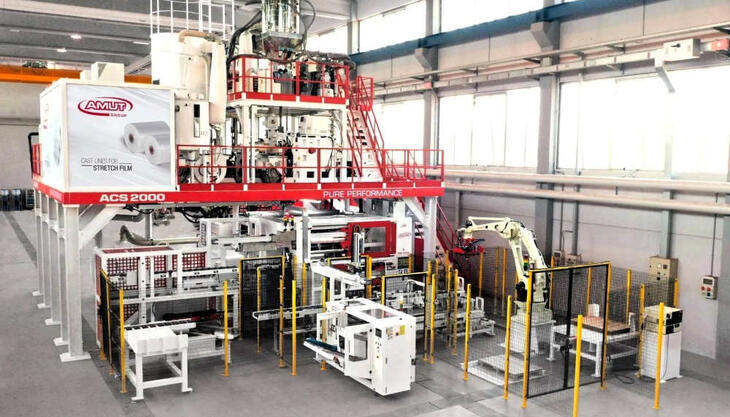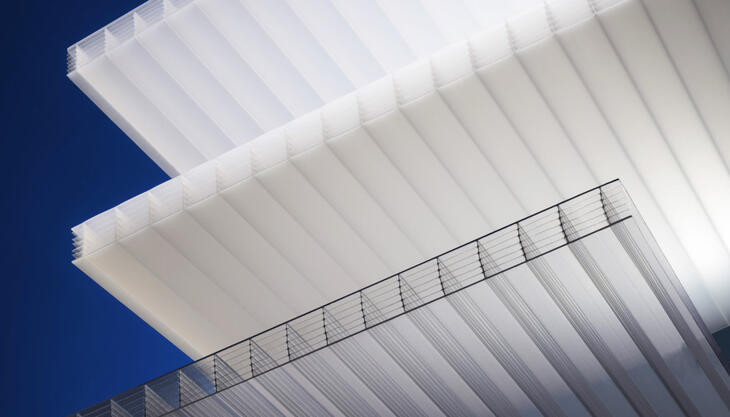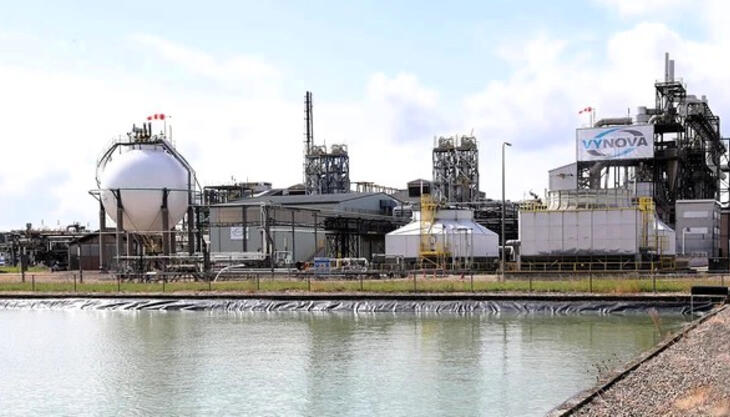Covestro earnings grow in the third quarter of 2021
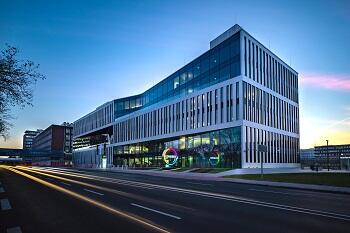
Covestro recorded a strong third quarter of 2021, which saw a continuation of the high earnings momentum from the first half of the year. Since demand remained strong, high selling prices meant that sales increased by 55.9 percent to around 4.3 billion euros (previous year: around 2.8 billion euros). The core volumes sold rose slightly by 0.8 percent compared to last year’s third quarter, mainly as a result of additional volumes from the Resins and Functional Materials (RFM) business acquired from DSM on April 1, 2021. Temporarily limited product availability, caused by unplanned production outages, curbed growth potential despite continuing solid demand.
Ebitda was up 89 %to 862 million euros (previous year: 456 million euros) on the back of a strong upward trend in margins. The high margins are attributable to significantly higher selling prices due to an advantageous competitive situation, which enabled Covestro to more than offset the rise in raw material prices. Consequently, net income more than doubled in the third quarter, rising to 472 million euros (previous year: 179 million euros). Free operating cash flow (FOCF) also increased by 5.5 percent to 381 million euros (previous year: 361 million euros).
“We were able to carry the entire momentum from the first half of the year over to the third quarter and benefited from the continuing high pricing level. Constantly robust demand for our products shows that we offer the right solutions for our customers”, said Markus Steilemann, CEO of Covestro. “With our portfolio, we’re ideally positioned to meet the increasing demand for sustainable solutions and can serve this need even more precisely with our new Group structure”.
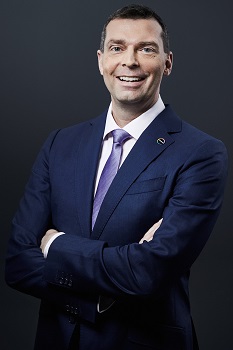 Earnings outlook for full year 2021 raised
Earnings outlook for full year 2021 raised
Taking into account its current business performance, Covestro again revised its full-year guidance on November 8. The Group now anticipates Ebitda will be 3 to 3.2 billion euros for 2021 as a whole. Due to a valuation-driven increase of working capital the FOCF is now expected to be 1.4 to 1.7 billion euros. Covestro now anticipates that the return on capital employed (ROCE) will be 19% to 21%. Due to limited product availability, core volume growth for the year as a whole is expected to be 10% to 12%, of which around 6% will still be attributable to the RFM business.
Covestro also assumes a positive medium-term trend. At its Investor Conference this September, the Group announced that it expects a substantial increase in mid-cycle Ebitda from its current level of 2.2 to 2.8 billion euros in 2024. This is due to Covestro’s organizational realignment implemented since July 2021 in the wake of the company’s transformation and the successful integration of RFM.
Investment in sustainable growth
On the back of global political initiatives to reduce greenhouse gases, Covestro anticipates growing demand, especially in the fields of energy-efficient construction and electromobility. In order to satisfy this increase in demand, Covestro aims to generate sustainable growth and in the future will align investments even more consistently to the aspects of profitability and sustainability as part of its “Sustainable Future” strategy.
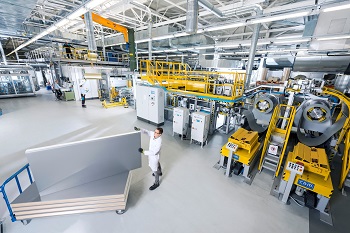 At its Investor Conference, Covestro also announced that it would resume the investment project for the construction of a world-scale MDI plant, which was temporarily suspended at the beginning of 2020. The company is exploring building the new plant in either the United States or China. A final decision is expected to be taken after the current project stage. The plant is scheduled to be put into operation in 2026. The Group plans to deploy the energy efficient AdiP technology, which is already used at its Brunsbüttel site in Germany. This technology can reduce CO2 emissions by up to 35% in an MDI plant.
At its Investor Conference, Covestro also announced that it would resume the investment project for the construction of a world-scale MDI plant, which was temporarily suspended at the beginning of 2020. The company is exploring building the new plant in either the United States or China. A final decision is expected to be taken after the current project stage. The plant is scheduled to be put into operation in 2026. The Group plans to deploy the energy efficient AdiP technology, which is already used at its Brunsbüttel site in Germany. This technology can reduce CO2 emissions by up to 35% in an MDI plant.
The Group aims to become fully circular in the long term. Covestro is therefore planning targeted capex spending of around 1 billion euros on circular economy projects over the next ten years, with a focus on alternative raw materials, innovative recycling, joint solutions and renewable energies. The EU’s Circular Foam innovation project has been a further important component of Covestro’s long-term strategic program since October. The company is coordinating this project, in which a total of 22 partners from nine countries are collaborating. Its goal is to close the material cycle for rigid polyurethane foams and to prepare the Europe-wide implementation of a blueprint. That could reduce waste by one million metric tons and CO2 emissions by 2.9 million metric tons, as well as 150 million euros in incineration costs, every year in Europe from 2040 onward. As insulation material in refrigerators and buildings, rigid polyurethane foams help to increase energy efficiency significantly. However, to date there is a lack of coordinated waste management and suitable recycling processes to enable a sustainable lifecycle. Consequently, chemical recycling in particular will be an important link in the chain to pave the way to a circular economy.
Significant increases in sales in both segments
As part of the Quarterly Statement for the third quarter, Covestro reported for the first time in the new reporting structure with the two segments Performance Materials and Solutions & Specialties. Reference information was restated accordingly.
 In the third quarter of 2021, the Performance Materials segment saw core volumes sold fall by 11.6% year over year. Limited product availability due to unplanned production outages curbed growth potential despite the fact that demand remained intact. That resulted in a decline in sales volumes in the furniture and wood processing industry as well as the construction industry, especially in the Emla and Apac regions. On the back of high selling prices, the segment’s sales increased by 52.2% to around 2.2 billion euros (previous year: around 1.4 billion euros). Ebitda was 755 million euros, more than double the figure for the prior-year quarter (previous year: 288 million euros), due to higher margins, as Covestro was able to more than offset the rise in raw material prices due to higher selling prices.
In the third quarter of 2021, the Performance Materials segment saw core volumes sold fall by 11.6% year over year. Limited product availability due to unplanned production outages curbed growth potential despite the fact that demand remained intact. That resulted in a decline in sales volumes in the furniture and wood processing industry as well as the construction industry, especially in the Emla and Apac regions. On the back of high selling prices, the segment’s sales increased by 52.2% to around 2.2 billion euros (previous year: around 1.4 billion euros). Ebitda was 755 million euros, more than double the figure for the prior-year quarter (previous year: 288 million euros), due to higher margins, as Covestro was able to more than offset the rise in raw material prices due to higher selling prices.
In the third quarter of 2021, the Solutions & Specialties segment’s core volumes sold rose by 22.7% year over year. That was mainly due to additional volumes from the acquisition of the RFM business. Sales also increased by 60.6% to around 2.1 billion euros (previous year: around 1.3 billion euros). That was attributable to the rise in average selling prices, as well as to the portfolio effect stemming from the acquisition of RFM. The segment’s Ebitda fell to 173 million euros, or by 16.4% compared to last year’s third quarter (previous year: 207 million euros). Higher selling prices were not able to fully offset the increase in raw material prices, with the result that lower margins reduced earnings. The costs of RFM integration, which were at the level planned, also had a negative impact on earnings.
Strong demand and high prices in the first nine months
On the whole, the results for the first nine months of 2021 are significantly above those of the previous year, in which the coronavirus pandemic had a substantial impact. Robust demand and, related to that, high selling prices continued to prevail. In the first nine months of 2021, core volumes sold rose by 11.9% (first nine months of 2020: -7.9%) and Group sales by 50.2 percent to around 11.6 billion euros (first nine months of 2020: around 7.7 billion euros), mainly due to an increase in selling prices. Ebitda tripled to around 2.4 billion euros (first nine months of 2020: 835 million euros), while net income rose by around 1.3 billion euros (first nine months of 2020: 147 million euros) or by almost nine-fold year over year. FOCF also increased significantly to around 1.1 billion euros (first nine months of 2020: 136 million euros).

















